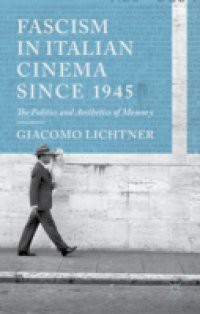Italy gave us the words 'fascism' and 'totalitarianism', yet globally the dominant image of the regime is one of an incompetent dictatorship served by soldiers who 'would not fight for love nor money on account of their languorous Latin character', as Noel Coward wrote. This book investigates Italian cinema's contribution to stereotypes of victimhood and innocence, otherwise known as Italiani brava gente, by tracing across the postwar period filmmakers, audiences, censors and the unforgettable characters of Italian cinema. The author casts an innovative eye on classic films like Rome Open City and 1900, and analyses in depth many lesser known works, to tease out recurrent trends and ongoing taboos of representation and assess them in a comparative European perspective. From the desperate resolve of neorealism to the bloated mediocrity of Berlusconian revisionist melodramas, Italian cinema has remembered selectively and silently forgotten the most shameful pages of Italy's history.

